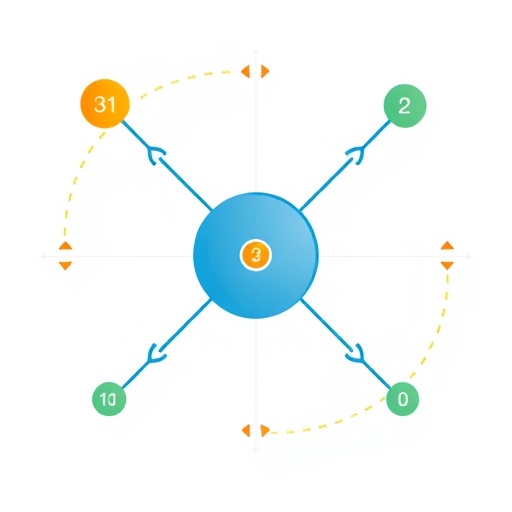In the rapidly evolving field of artificial intelligence, a groundbreaking approach has emerged for enhancing personalized English vocabulary acquisition, known as AVAR-RL. This innovative methodology harnesses the power of adaptive reinforcement learning, offering new pathways for learners to engage in language learning dynamically and effectively. With traditional vocabulary acquisition methods often proving to be monotonous or ineffective, this new approach presents a thrilling opportunity to tailor learning experiences to individual needs and preferences.
At the core of AVAR-RL lies the concept of personalization, which is becoming increasingly crucial in educational technology. By leveraging the principles of reinforcement learning, the system adapts to each learner’s strengths and weaknesses, providing an optimized learning environment that encourages engagement and retention. This adaptability is particularly relevant in language learning, where individual differences in learning pace, style, and interests can significantly impact the effectiveness of vocabulary acquisition.
The methodology employed in AVAR-RL incorporates a feedback mechanism that is fundamental to the reinforcement learning paradigm. As learners interact with vocabulary exercises, the system monitors their performance and adjusts the level of difficulty accordingly. This constant evaluation allows for a more tailored learning experience, addressing gaps in knowledge while reinforcing vocabulary that the learner has already mastered. Consequently, users can experience a more fluid progression through their vocabulary acquisition journey.
One of the critical benefits of AVAR-RL is its potential to enhance motivation. Traditional vocabulary drills can lead to learner fatigue, as repeated exposure to the same words without context often results in disengagement. However, the adaptive nature of AVAR-RL ensures that learners are constantly challenged and engaged, reducing the risk of frustration and promoting a sense of achievement. This gamification element is crucial in maintaining learners’ enthusiasm as they navigate the complexities of language acquisition.
Additionally, the implementation of AVAR-RL can lead to a better retention of vocabulary over time. Studies have shown that spaced repetition, which is an integral aspect of the reinforcement learning approach, aids in transferring information from short-term to long-term memory. Thus, learners utilizing this system can expect not only to acquire new words but also to retain them effectively, enabling more natural usage in real-life communication scenarios.
Furthermore, AVAR-RL allows for the integration of various contexts in which vocabulary is used, enhancing the relevance of the words being learned. By presenting vocabulary within meaningful contexts—such as dialogues, articles, or interactive scenarios—learners can grasp nuances and applications that are often lost in conventional rote memorization. This contextual learning fosters a deeper understanding, allowing users to apply vocabulary in practical situations.
A significant aspect of AVAR-RL is its ability to create a personalized lexicon that evolves as the learner progresses. Instead of a one-size-fits-all list of vocabulary, the system curates words based on individual interests, previous performance, and current learning goals. This personalized lexicon ensures that learners are not only exposed to a broad range of vocabulary but also engage with words that resonate with their personal experiences or future aspirations.
Moreover, the data collected during the learning process can be leveraged to enhance the overall efficacy of the platform. By analyzing patterns in user performance, educators and developers can gain insights into common struggles faced by learners. This information can be used to refine and enhance the learning algorithms, ensuring that AVAR-RL remains at the forefront of language acquisition technologies. Continuous improvement driven by user data exemplifies the strengths of adaptive learning systems.
Creating a rich and diverse vocabulary is essential for fostering effective communication. As learners become proficient in a wide array of words, their ability to express thoughts, ideas, and emotions improves significantly. Consequently, AVAR-RL not only caters to the lexical needs of learners but also bolsters their confidence in using the English language—an essential factor for any language learner aiming for fluency.
In a world increasingly reliant on technology for education, the implications of AVAR-RL extend beyond personal language learning. This method could revolutionize classroom teaching approaches, providing educators with a tool that adapts to the varying needs of students. By incorporating AVAR-RL into traditional curricula, teachers can better serve their diverse student populations, ensuring that every learner receives support tailored to their unique challenges and goals.
The potential of AVAR-RL to transform vocabulary acquisition speaks to a larger trend in educational technology: the shift towards personalized learning environments. As more tools emerge that focus on adaptivity and individualized experiences, the landscape of education is likely to evolve significantly. AVAR-RL stands as a testament to this shift, showcasing the possibilities that arise from integrating advanced technologies into language learning.
As its implementation becomes more widespread, the impact of AVAR-RL on learners can be substantial. By offering a more engaging and effective way to acquire vocabulary, this innovative approach may lead to improved language proficiency across a range of demographics. More than just a learning tool, AVAR-RL embodies the future of personalized education, where technology and learning harmonize to foster success.
In conclusion, the AVAR-RL approach marks a significant leap in the methods available for English vocabulary acquisition through its integration of adaptive reinforcement learning. By offering personalized, engaging, and contextually relevant learning experiences, it empowers learners to take control of their language journey. With continuous iterations and enhancements driven by user data, the future of language learning looks increasingly promising—one where personalized tools like AVAR-RL pave the way for deeper connections with language and culture.
Subject of Research: Personalized English vocabulary acquisition through adaptive reinforcement learning.
Article Title: AVAR-RL: adaptive reinforcement learning approach for personalized English vocabulary acquisition.
Article References:
Meng, J. AVAR-RL: adaptive reinforcement learning approach for personalized English vocabulary acquisition.
Discov Artif Intell 5, 317 (2025). https://doi.org/10.1007/s44163-025-00584-3
Image Credits: AI Generated
DOI: https://doi.org/10.1007/s44163-025-00584-3
Keywords: Adaptive learning, vocabulary acquisition, reinforcement learning, personalized education, language learning technologies.
Tags: adaptive reinforcement learningAVAR-RLdynamic vocabulary exerciseseffective vocabulary masteryengagement in language learningenhancing educational technologyfeedback mechanism in educationindividual learning differenceslanguage learning technologyoptimizing learning environmentspersonalized vocabulary acquisitiontailored learning experiences





